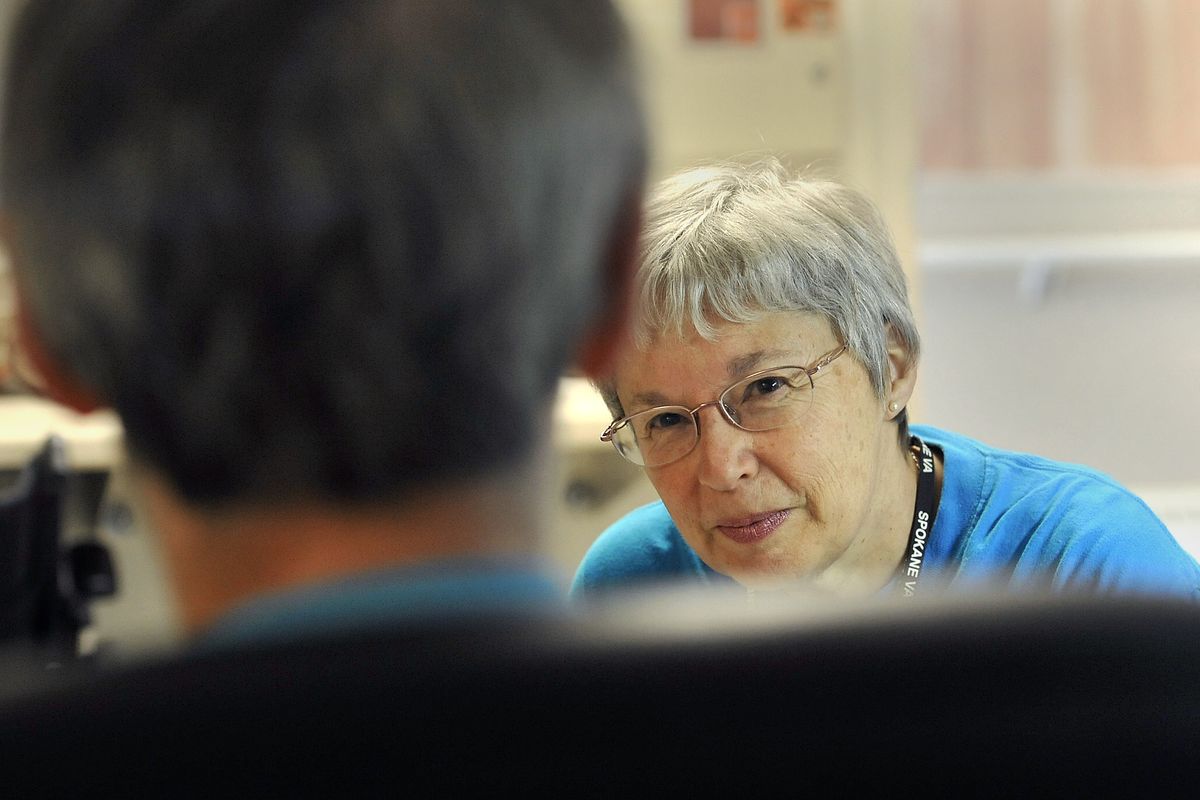Bedside command: Twilight Brigade helps dying vets

Ronnie Foster has held vigil at the bedside of about 50 dying people, most of them veterans.
She has learned some of the “mysteries” that take place at the bed of those dying.
Some people in comas, she says, seem to somehow wait to die until beloved family members arrive. Others prefer privacy.
“You can be with a person 24 hours straight and then take a break and boom, they’re gone,” she says.
Foster is the president of the Spokane area chapter of the Twilight Brigade/Compassion in Action.
The national group, cofounded by Dannion Brinkley – who has written several books about his near-death experiences and how it led to his work with dying people – is part of a larger cultural movement that believes no one should go through the dying process alone.
The Twilight Brigade/ Compassion in Action was one of the first major efforts, established in 1997.
An unrelated effort, found in medical centers throughout the country, was established in 2001 by Sandra Clarke, a critical care nurse at Sacred Heart Medical Center in Eugene, Ore.
Her program, titled “No One Dies Alone,” provides training for health care and hospice professionals and volunteers.
Spokane’s chapter of the Twilight Brigade was founded in 1998. Volunteers work exclusively with dying vets at the Spokane Veterans Affairs Medical Center.
“We focus on veterans, because they were there when we needed them and we need to be there when they need us,” said Foster, 60.
“The idea is to be that loving presence and give them the gift of listening.”
As Memorial Day approaches, Foster is getting the word out that Spokane’s Twilight Brigade is in need of bedside volunteers, women and men willing to be part of these end-of-life vigils.
Brinkley will be in town for two fundraising events over Memorial Day weekend. And over the summer, Foster will sponsor training here for interested volunteers.
Frank Sell, a 68-year-old retired sales and marketing manager, has been a Twilight Brigade volunteer for several years.
What skills does it take to volunteer? Sell and Foster listed some characteristics:
• Acceptance of death.
The best volunteers have already experienced a bedside vigil with a dying loved one. So they know death rarely looks like it does on television, where dying characters traditionally share profound insights, then take a sudden, dramatic breath, turn their heads to the side, close their eyes and exit.
People die in as many individual ways as they lived. But death is rarely frightening to witness, the volunteers pointed out. And the dying process can be life-affirming for everyone.
“There’s so much living to do in the process of dying,” Foster said. “There’s so much people can learn from it. There is still so much joy people can have while lying in that bed. The simple act of holding someone’s hand can drain away fear.”
• A belief in the afterlife.
Brinkley’s beliefs, based on his near-death experiences, are often described as “New Age,” and they’ve attracted some controversy.
But Twilight Brigade volunteers don’t have to share Brinkley’s afterlife beliefs, Foster said.
“Everybody’s belief system is valued,” she said. “We have people with many beliefs. The key thing is love.”
• A realistic commitment.
Despite the profound experience of journeying with a dying person, the volunteer commitment can be exhausting, Foster and Sell pointed out, and volunteers can burn out quickly if they don’t pace themselves.
“We’re all going to go,” Sell said. “We know we’re all going to go. You can be very experienced at (vigils) but it doesn’t get any easier.”
Despite the sometimes difficult volunteer gig, Sell agreed with Foster, who said: “This is the most rewarding thing I’ve ever done.”